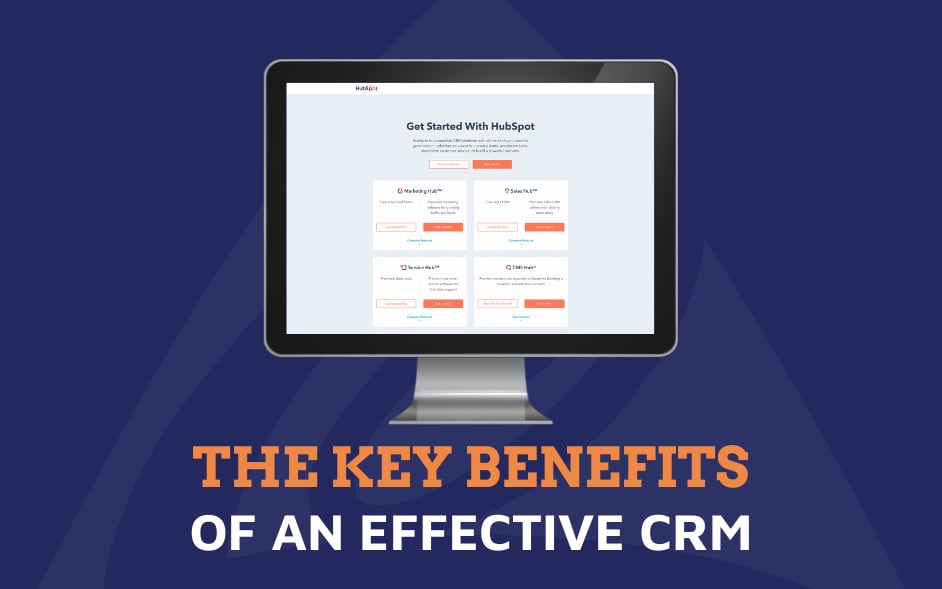The Key Benefits of an Effective CRM

Your customer base drives the success of your business, and it’s critical to monitor and maintain those relationships to build customer loyalty. Keeping track of these interactions in one central database helps your team track, study and manage your customers’ activities. There are many benefits to using a Customer Relationship Management system, or what we call a CRM.
Customer Data Access
Utilizing a CRM provides your team with access to customer data in the form of their contact information and interactions they’ve had with your site. You can see data such as previous sales to this customer, how many times they’ve visited your site, past conversations you’ve had with them and more. You’ll always be able to see the history you have with a contact, and this can help your team decide how best to interact with this customer going forward.
Customer Segmentation Capability
As a result of having access to customer records, using a CRM allows you to create segments of your customers according to specific characteristics that are valuable to you. Once you’ve segmented your customers by their shared similarities, you’ll be able to create different game plans to interact with them.
For example, how you interact with a new customer will be slightly different from how you interact with a loyal customer familiar with your brand and its products or services. Creating segments allows you to organize and control your interactions so that you communicate to the right customer in the right way according to their stage of the buyer’s journey.
Automation Potential
When used the right way, automation saves your team valuable time by taking over tedious sales-related tasks. For example, using the automation capabilities of your CRM, you can send automated reminders to check in with contacts who your team hasn’t interacted with in a while, which helps increase customer retention efforts.
Automation also helps keep your collected data organized and reduces the time it would take to manually manage the data. Keep in mind that you never want automation to fully replace all human interaction in the sales process. Automation should be used to manage administrative tasks that hold up your sales team so that they have more time to build meaningful relationships and help your customers.
Performance Metrics Benefits
One of the most important benefits of your CRM is that it gives you access to customer data, interactions and activities. Sales teams gain access to a full scope of performance metrics and feedback, which helps enhance your content quality for each customer.
Remember that your customers are more than just sales opportunities and segments of data. Keep the “why” of your business top of mind and know that your loyal customers are the ones helping you achieve your business goals. To maintain this loyalty, focus first and foremost on fostering understanding and empathetic relationships with your customers.
A Customer Relationship Management system will likely cost money, but it’s a valuable investment to make when it comes to growing and scaling the success of your business. If you don’t have the resources to fully invest in a paid CRM, there are free options out there to get you started, such as HubSpot’s free CRM. A poorly implemented or misused system can be counterproductive to your team, so make sure to test multiple demos to find the right software for your business. The result is a resource that gives you efficient access to customer data and interactions, building a database that serves as a valuable asset for your business. Using your CRM to its fullest potential will allow you more time to make the connections that matter most.
Watch Episode 22 of Gameplan for Growth for a two-minute drill on the benefits of using an effective CRM.
Explore our suite of services and how they can enhance your business. Contact us today to learn more!
